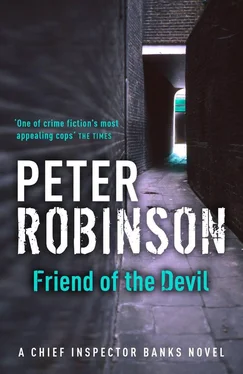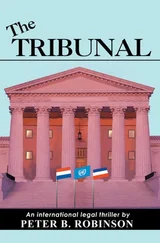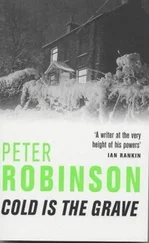“Yes. And even if we assume that someone set out to kill Lucy, that it was premeditated, it still makes more sense just to dump her over the side. It wasn’t as if she could be forced to confess anything, or even show any fear or feel pain. She couldn’t even talk.”
“Are you suggesting that it wasn’t someone involved in the Chameleon case?”
“I don’t know what I’m suggesting,” said Blackstone. “But it’s a possibility worth considering. Could anyone who was that angry at Lucy Payne for what she’d done to a family member be that cold-blooded? Where was the anger?”
“If the killer had simply pushed Lucy off the edge of the cliff,” Banks said, “there’s always a chance that the body might never have been found.”
“But they’d have recovered the wheelchair, surely, and that would have told them what happened.”
“Perhaps.”
“Maybe I’m wrong,” said Blackstone. “I’m just thinking out loud. She might not have even died if she went over the cliff.”
“No, Ken, I think you’re heading in the right direction. This was a cold-blooded job, simple as that. A job that had to be done efficiently. Almost like a hit. The killer had to know that the victim had died at her hands, perhaps even watch her die. She couldn’t face the uncertainty. After all, if Lucy Payne was a quadriplegic already, there wasn’t much more harm anyone could do to her other than extinguish her life completely, what little of it there was left.”
“And all that was left was inside,” said Blackstone.
“What?”
“I don’t know. I’m just rambling. You’re right, though. It was an efficient method. It got the job done, and it left the evidence in plain sight, for all to see. There has to be something in that.”
“So whoever did it was making a statement?” said Banks.
“Yes. Draining her life’s blood. And what was that statement? I think when we get the answer to that, we’ll be a long way toward at least ruling out a lot of people.”
“We?”
“I mean Annie’s team.”
“But it does feel like a continuation, doesn’t it?” Banks said. “Like unfinished business.”
“Yes,” Blackstone agreed. “I was thinking of suggesting bringing in Jenny Fuller again, as a profiler. She worked the original case.”
“I don’t know where she is at the moment. I think she’s left Eastvale for good. She could be in America or Australia as far as I know. I haven’t seen her in ages.”
“You sound as if you regret that. History?”
“Plenty,” said Banks, “but not the kind you’re thinking of. All my mistakes with Jenny are in what we didn’t do, not in anything we did. Missed opportunities rather than anything hastily done and regretted.”
“Hmm.”
“We’ve known each other a long time, that’s all,” said Banks. “Ever since I’ve been up north, as a matter of fact. I met her on my very first case. Maybe things could have been different, but they’re not, and it’s too late now. It never happened.”
They finished their drinks and headed out to Briggate. The fine weather had brought people out in the city center, and the pedestrian precinct was packed, the shops doing brisk business: Marks & Spencer, Harvey Nichols, Debenhams, Curry’s Digital. All the fourteen-year-old mothers were out showing off their solarium suntans, pushing the pram with one hand and holding a cigarette with the other. Or so it seemed. After saying good-bye to Blackstone at the Headrow and promising to get together soon for a curry and a few pints, Banks went into Muji and bought a handful of those little cardboard-bound notebooks he liked so much, then he wandered into Borders to see if they had White Heat on sale. He had enjoyed the first volume of Dominick Sandbrook’s history of the fifties in Britain, Never Had It So Good, and looked forward to reading the second — his period, the sixties — after he’d finished Postwar . After that, he would check out the new CDs in HMV.
Annie didn’t feel particularly proud of her performance at Millgarth as she drove into Whitby just over an hour and a half later. It was a beautiful day, and the sea lay spread out below her, all greens and blues, so much brighter and more vibrant than she had seen them before. The red pantile roofs of the houses straggled up the hillside, and the harbor walls stretched out into the water like pincers. The whole scene, flanked on either side by high cliffs, appeared more like an abstract landscape than a real place.
From the heights, she could easily see the town’s two distinctive halves, split by the estuary: East Cliff, with its ruined abbey and Saint Mary’s Church, like an upturned boat; and West Cliff, with its rows of Victorian guesthouses and hotels, the statue of Captain Cook and the massive jawbone of a whale. Though Annie took in the sight, and her painter’s eye translated it to an abstract canvas, her mind was preoccupied with Banks, Eric and, most of all, her own erratic behavior. She’s Lost Control . Didn’t someone used to sing a song called that? Banks would know. Banks. Damn him . What had she been thinking? That one quick shag with him was going to make everything all right?
The more she thought about Saturday night, the more convinced she became that it wasn’t the age difference that bothered her. After all, if it were the other way round, if she were a twenty-two-year-old woman, it would seem perfectly normal for most men of forty and above to sleep with her — she bet there wasn’t one of them would turn down a Keira Knightley or a Scarlett Johansson. There were also plenty of women in their forties who had bragged to Annie about making youthful conquests. She ought to be dead chuffed with herself for pulling Eric, rather than feeling so cheap and dirty. But she knew that she felt that way because that wasn’t who she was.
Perhaps she felt so bad because she had always believed that she chose to sleep with men she could talk to in the morning, and the fact that they were often older than her, more mature, like Banks, never seemed to matter. They had more experience, more to talk about. The young were so self-obsessed, so image-conscious. Even when she was younger, she had felt the same way, had always preferred older men and thought boys her own age somewhat shallow and lacking in everything except sexual energy and frequency. Perhaps that was enough for some women. Perhaps it ought to be enough for her, but it wasn’t; otherwise she wouldn’t feel so bad.
What upset her the most of all, and what refused to go away, was that she hadn’t known what she was doing. She had lost control. For some reason, she had been drunk enough that being fancied by a fit young lad when she’d just turned forty and was starting to feel ancient had appealed to her. Waking up with a blinding hangover and a stranger was never a good thing, in Annie’s experience, but in this case the fact that he was young enough to be her son only made it worse.
And she couldn’t even claim that she had been coerced or date-raped or anything. There had been no Rohypnol or GHB, only alcohol and a couple of joints, and the worst thing about it was that, pissed as she had been, she knew she had been a willing participant in whatever had gone on. She couldn’t remember the details of the sex, only hurried fumblings, graspings, rough grunts and a sense of everything being over very quickly, but she could remember her initial excitement and enthusiasm. In the end, she assumed that it had been as unsatisfactory for him as it had been for her.
Then there was the episode with Banks last night. Again, what on earth had she thought she was doing? Now things could never be the same; she’d never be able to face him with any self-respect again. And she had put both Banks and Winsome in an awkward position, driving in that state. She could have lost her license, got suspended from her job. And that seemed the least of her problems.
Читать дальше












